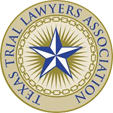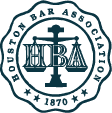When you step onto someone else’s property, be it a shopping mall, a neighbor’s home, or a public park, there is an implicit trust that the premises are safe and free of hazards. Unfortunately, this is not always the case. In Houston, Texas, when an injury occurs on another’s property due to unsafe conditions, the area of law that typically comes into play is known as premises liability.
Understanding your rights under these circumstances is crucial, and that’s where a Houston Premises Liability Lawyer comes into play.
Understanding Premises Liability in Texas
Premises liability is a legal concept that holds property owners and managers accountable for injuries that occur on their property due to unsafe or defective conditions. In Texas, the law is clear: property owners have a duty to ensure their premises are reasonably safe. If they fail to do so, and someone is injured as a result, the injured party may have the right to seek compensation.
The scope of premises liability is broad, encompassing various types of properties, including private residences, commercial spaces, and public areas. Whether you’ve experienced a slip and fall accident at a grocery store or suffered from the psychological and physical consequences of an animal attack, understanding the specifics of Texas law is key to protecting your interests.
Legal Framework for Premises Liability Claims
The foundation for premises liability claims in Texas was laid out in the landmark Texas Supreme Court case, Corbin v. Safeway Stores, Inc. This case set forth the elements required to establish a premises liability claim:
- The owner knew or should have known about a dangerous condition.
- The condition posed an unreasonable risk of harm.
- The owner did not take reasonable steps to remove or warn about the risk.
- The owner’s negligence caused the plaintiff’s injuries.
These elements underscore the complexity of premises liability cases and the need for skilled legal representation to navigate them successfully.
The Duty of Care in Texas Premises Liability
In Texas, the duty of care a property owner owes to visitors depends on the visitor’s status: invitee, licensee, or trespasser. Invitees, such as customers in a store, are owed the highest duty of care, including the responsibility to inspect for and fix or warn about hazards. Licensees, who are typically social guests, must be warned of known dangers, but the owner is not required to inspect the property for them. Trespassers are owed the least duty, with owners only required to refrain from willful or wanton injury.
One exception to this rule is the attractive nuisance doctrine, which provides that property owners can be held liable for injuries to children caused by hazardous conditions on the property, such as swimming pools or trampolines, even if the children were trespassing.
Types of Premises Liability Cases
Premises liability cases can arise from a variety of hazardous conditions. Some common types of cases include:
- Slip and Fall Accidents: These occur when a person slips, trips, or falls as a result of a dangerous or neglected condition on the property. For more information, visit our Houston Slip and Fall Attorney page.
- Dog Bites: Owners may be held liable for injuries caused by their pets, especially if the owner knew the dog had a propensity to bite. If you’ve been bitten by a dog, it’s important to consult with a lawyer experienced in dog bite injury cases.
- Negligent Security: Property owners can be held responsible for injuries that occur as a result of inadequate security on their premises.
- Swimming Pool Accidents: These cases often involve children and can be particularly tragic. Owners must ensure their pools are safe and comply with local regulations to prevent accidents.
Limitations of Landowners’ Liability in Texas
Texas law, specifically Chapter 75 of the Texas Civil Practice and Remedies Code, outlines limitations on liability for landowners, particularly in cases involving recreational use of their land. Landowners owe no duty of care to trespassers, except in cases of gross negligence or willful or wanton acts. Additionally, if a landowner allows their land to be used for recreation without charging a fee, their liability for any injuries is limited. This underscores the importance of understanding the nuances of Texas law when pursuing a premises liability claim.
Compensation and Damages in Premises Liability Cases
Victims of premises liability incidents may be entitled to both economic and non-economic damages. Economic damages cover tangible losses like medical expenses and lost wages, while non-economic damages compensate for pain and suffering, and loss of quality of life. In some cases, if the property owner’s actions were particularly egregious, punitive damages may also be awarded.
Navigating the complexities of compensation can be challenging, which is why having a knowledgeable Houston premises liability lawyer is essential. They can help accurately value your claim and ensure you receive the compensation you deserve.
Exceptions to Premises Liability
Not all hazards lead to liability for the property owner. One key exception is the concept of open and obvious hazards. If a danger is so apparent that an individual could reasonably be expected to notice and avoid it, the property owner may not be held liable for injuries resulting from that hazard. However, this exception is not absolute, and the specifics of each case can vary. Personal capabilities and limitations, such as disability or impairment, can also affect premises liability determinations.
Steps to Take After an Injury on Someone Else’s Property
If you are injured on someone else’s property, it is important to act promptly to protect your legal rights:
- Report the Incident: Notify the property owner or manager immediately.
- Seek Medical Treatment: Document your injuries by seeking professional medical help.
- Document Everything: Keep records of all medical treatments and expenses, and take photos of the scene and your injuries.
- Preserve Evidence: Obtain contact information for any witnesses, and if possible, secure surveillance footage.
- Stay Off Social Media: Avoid discussing the incident or posting details online, as this can be used against you in your claim.
- Contact a Houston Premises Liability Lawyer: Before speaking to insurance companies, it is crucial to get legal advice. Remember, do not give a recorded statement to an insurance company without having legal representation.
The Role of a Houston Premises Liability Lawyer
A premises liability lawyer can be instrumental in your case, offering expertise in gathering evidence, interviewing witnesses, and building a compelling claim on your behalf. They understand the complexities of premises liability law and will aggressively negotiate with insurance companies to reach a fair settlement. Firms like Adley Law Firm operate on a No Fee Guarantee, which means you don’t pay unless they win your case, ensuring that your interests are aligned with your attorney’s (fees).
Choosing the Right Houston Premises Liability Lawyer
When selecting a premises liability attorney in Houston, consider their experience, track record, and approach to client service. A firm that offers personalized attention, like Adley Law Firm, can make a significant difference in the outcome of your case. Furthermore, choosing a firm with a strong local presence and understanding of Houston’s legal landscape is advantageous.
Filing a Premises Liability Claim in Houston
Filing a premises liability claim involves several steps, and timing is critical. Texas law imposes a two-year statute of limitations for personal injury claims, making it essential to begin the legal process as soon as possible. A lawyer will help determine liability, collect evidence, secure witness testimony, and handle negotiations with insurance companies. The goal is to ensure you are justly compensated for your injuries and losses.
Conclusion
Injuries sustained on someone else’s property can have a profound impact on your life. Understanding your rights under Texas premises liability law is the first step towards seeking justice and compensation. Whether you’ve been injured in a cinema, a shopping center, or a private residence, a Houston premises liability lawyer can provide the guidance and representation you need.
If you or a loved one has been injured due to a property owner’s negligence, don’t hesitate to reach out for help. Contact Adley Law Firm for a free consultation to discuss your case and explore your legal options. With the right legal support, you can navigate the complexities of premises liability and move towards recovery with confidence.






